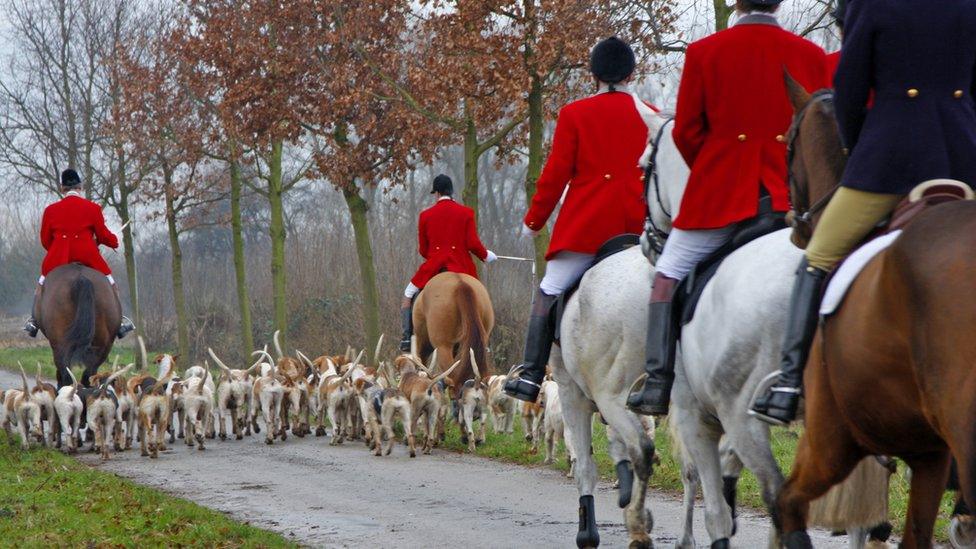Hunting Act: Countryside still divided 20 years on
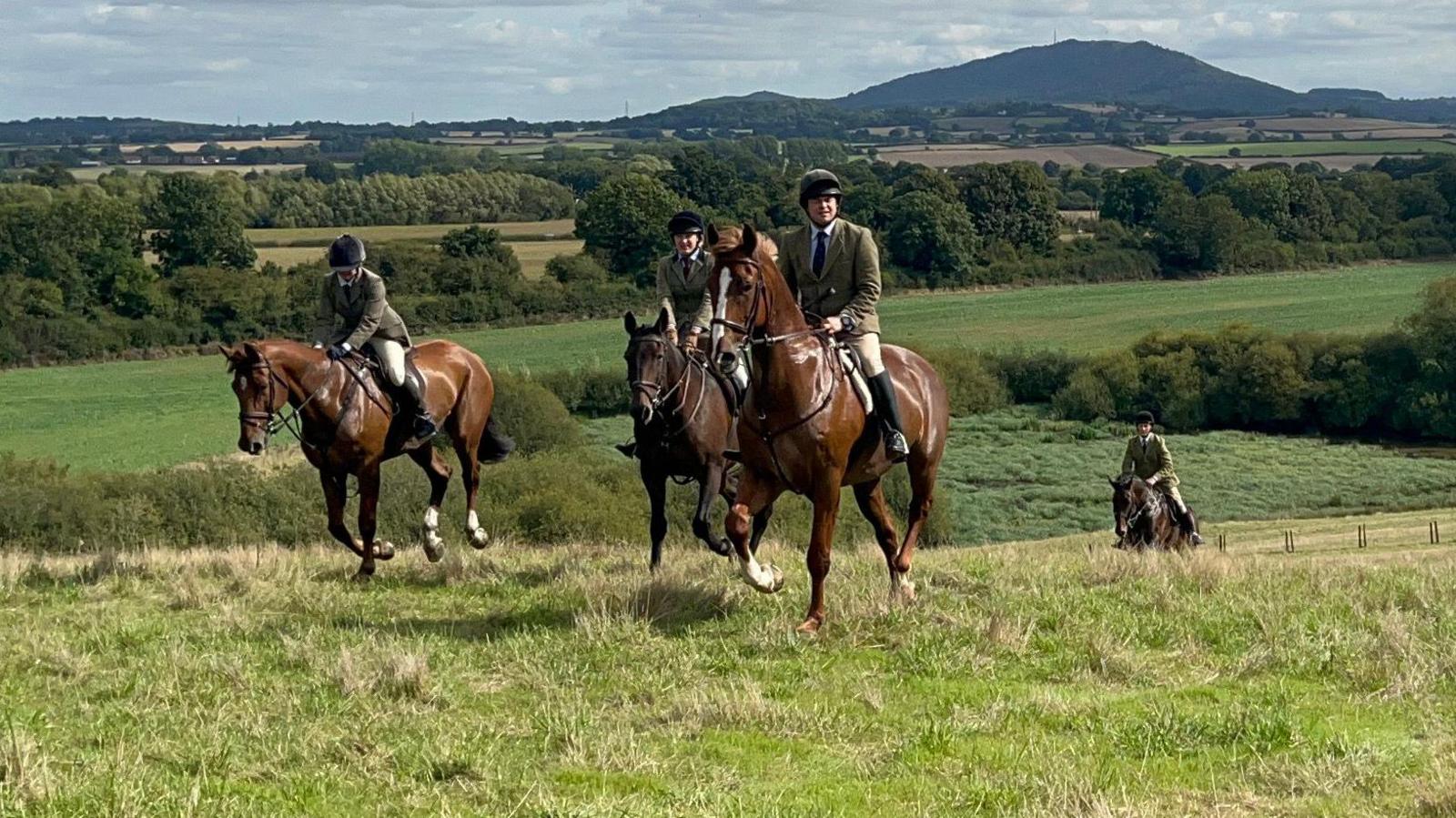
The Hunting Act was given Royal Assent in November 2004 and came into force in 2005
- Published
Trail hunting remains a bitterly disputed topic in the countryside, as the 20th anniversary of the Hunting Act approaches.
The ban on fox hunting was given Royal Assent on 18 November 2004 - and came into force in February 2005.
Labour's election manifesto promised a ban on trail hunting, which arose as a "cruelty free" replacement for fox hunting, banned in 2004.
Hunt opponents have claimed trail hunting was a “smokescreen… to get away with breaking the law,” while hunters said a ban on the practice would mean the “end of a way of life”.
A Department for Environment, Food and Rural Affairs (Defra) spokesperson confirmed to the BBC that it would seek to ban trail hunting "that allows for the illegal hunting of foxes, deer, and hares."
What is trail hunting?
Hunting with hounds has been happening in the UK since the 16th Century.
Trail hunting involves using a rag soaked in animal scent, which is then dragged along to lay a trail for the hunt to follow.
It mimics the scent of a wild animal - so the hounds chase that, not a fox. The intention is to replicate the pursuit across the countryside, without the need to kill animals.
The Hunting Act banned using dogs to hunt wild mammals - foxes, hares, deer and mink - across England and Wales.
Whilst it actually came into force in 2005, the bill was characterised by heated debate from its introduced to the Commons on 9 September 2004 until it gained Royal Assent on 18 November.
On the day of the bill's final reading, two protestors invaded the Commons chamber, and a demonstration was held with thousands of protestors campaigning against the Hunting Act in Parliament Square.

Jasmin Teague said a ban on trail hunting would be "a real shame"
At an open day designed to show the media - and sceptics - how ethical trail hunting is, 22-year-old Jasmin Teague said: “It would be a real shame if we were to lose this sport."
Ms Teague was born in the early 21st Century, which means she grew up with no memory of legal fox hunting, nor the fierce debate before the ban.
Without the hunts, she said she would “lose touch with a lot of friends, because you don’t have the regular, weekly meet-ups.”
Listen on BBC Sounds
Those who strongly oppose trail hunting claim it allows illegal fox hunting to continue.
Hunt saboteurs, or "sabs", will watch hunts taking place - and sometimes intervene when they believe an illegal hunt might be happening.
Saboteurs Alec and Edgar - not their real names - believe the Hunting Act does not go far enough.
“They just go out and fox hunt exactly the same way they did 20 years ago,” Alec said.
“When the police turn up, or they get caught killing a fox and somebody gets footage of it and they end up in court, they just say: ‘Sorry we were following a trail and it was an accident.’
“They just use [trail hunting] as a smokescreen and a loophole to get away with breaking the law.”
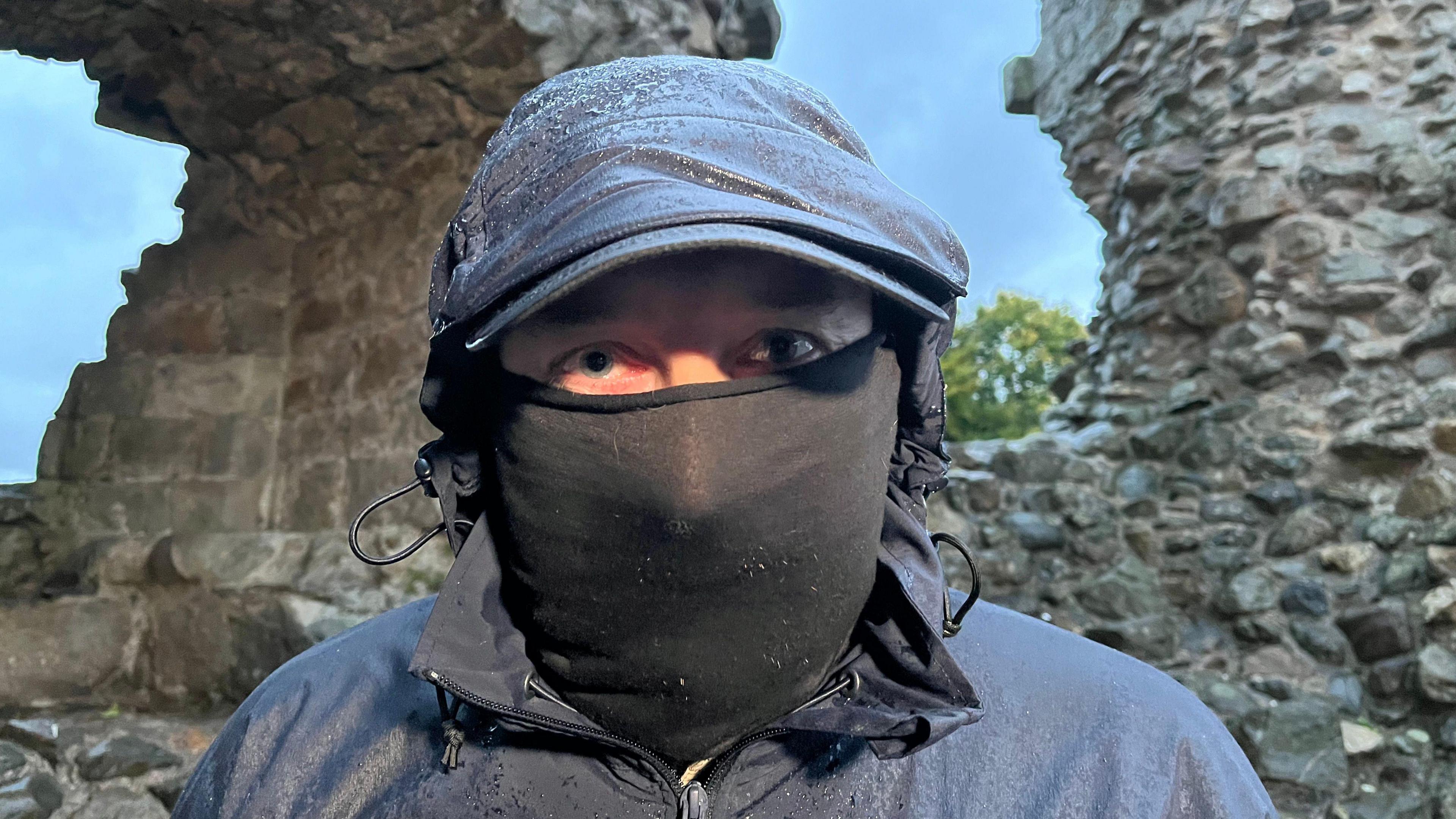
Hunt saboteurs like Edgar are in favour of a ban on trail hunting
Edgar added: “What we’re seeing now is what used to happen pre-ban.
“There’s been a reluctance by hunts to stop [fox] hunting basically – it’s a continuation of what they’re doing, which is hunting wild animals with dogs illegally.”
The British Hound Sports Association maintains that in the last 20 years, more than 250,000 days of hunting have taken place - with only 25 convictions involving hunts registered with them.
But the Hunt Saboteurs Association told the BBC the low number of convictions was evidence that the current law was ineffective.
'The end of a way of life'
Daniel Cherriman is the master of the South Shropshire Hunt – and believes a ban on trail hunting could have serious consequences.
“Lots of hounds and lots of horses would be surplus to requirement, lots of staff would lose their jobs, lots of families would lose their homes,” he said.
“It would be the end of a way of life for lots of other people that aren’t directly employed, or aren’t full-time – but it’s part of their way of life.”

Daniel has been the joint master of the South Shropshire Hunt since 2021
Mr Cherriman was convicted of breaching the Hunting Act in November 2022 for failing to call his hounds off a fox.
He plead guilty at Telford Magistrates Court and received a fine of more than £600.
Asked if his own conviction undermined the claim that trail hunting was cruelty free, he said: “We’re all entitled to a mistake.”
“It was an unfortunate situation where we were crossing some country, a fox got up out of some undergrowth which I actually didn’t see until I saw the footage in the police station.
“It was my decision [to plead guilty], I took responsibility for the decision.
"Perhaps I shouldn’t have allowed that set of circumstances to take place.”
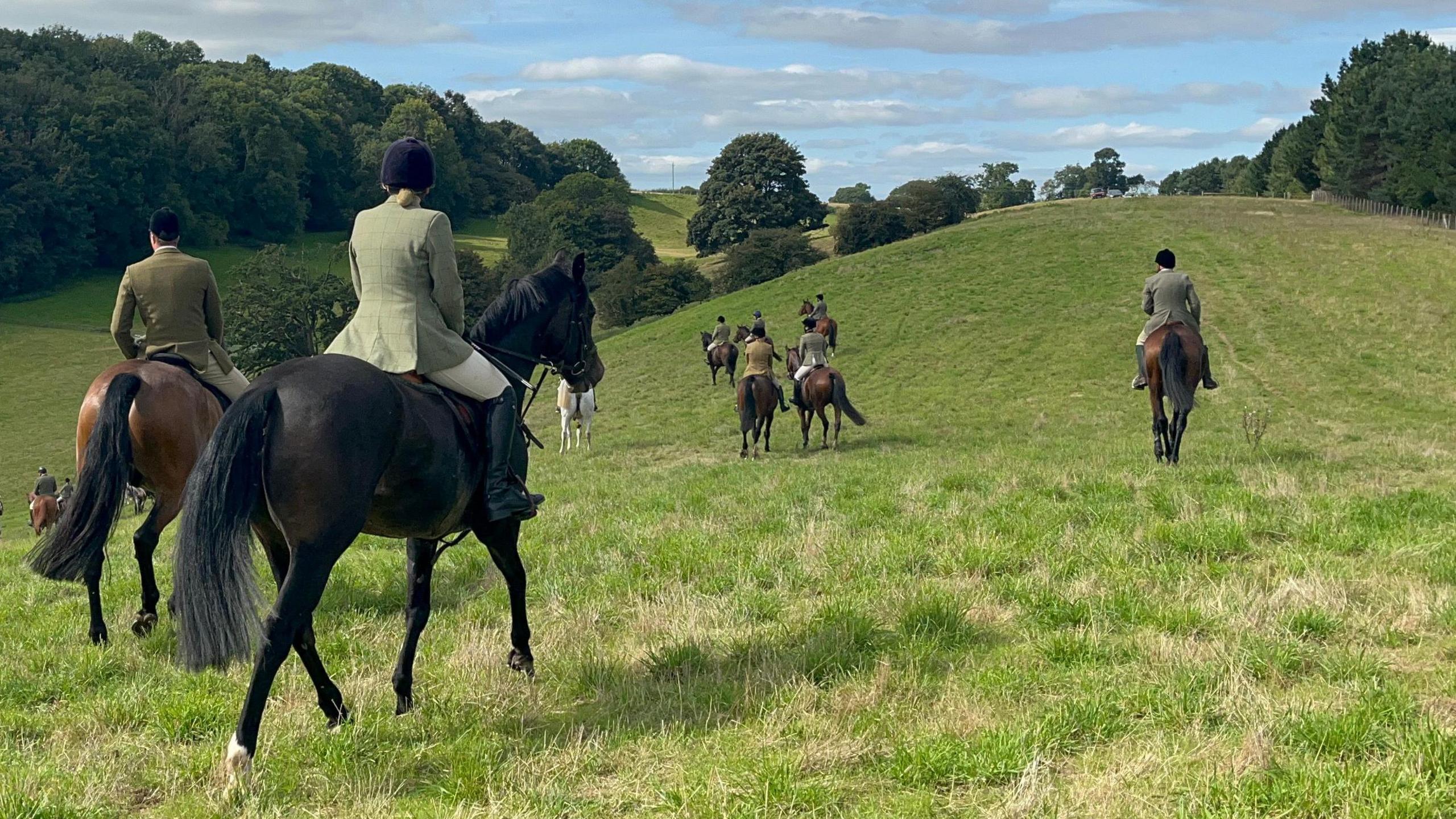
The South Shropshire Hunt is one of about 17 hunts in the West Midlands
A spokesperson for Defra said the government "was elected on a mandate to introduce the most ambitious plans to improve animal welfare in a generation.”
They confirmed the government would seek to ban trail hunting "that allows for the illegal hunting of foxes, deer, and hares."
Get in touch
Tell us which stories we should cover in Shropshire
Follow BBC Shropshire on BBC Sounds, Facebook, external, X, external and Instagram, external.
Related topics
- Published26 December 2022
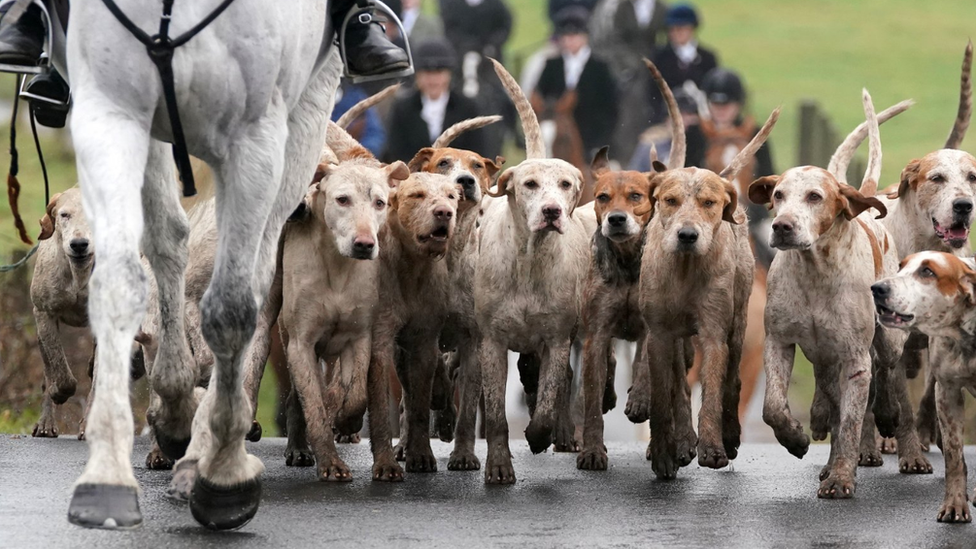
- Published25 November 2021
